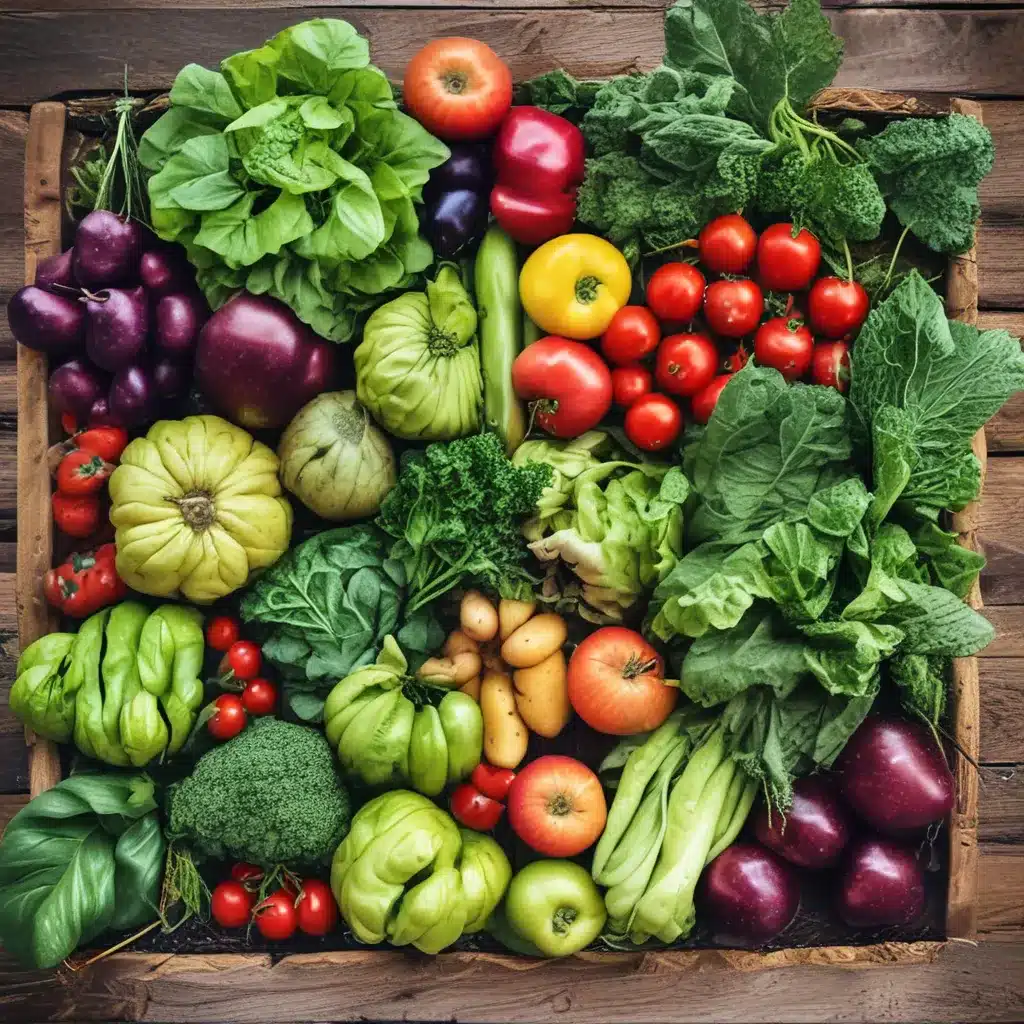
Uncovering the Hidden Treasures in Our Food
As I sit here, sipping on my morning coffee and pondering the complexities of our modern food system, I can’t help but feel a twinge of concern. You see, over the past few decades, the nutritional value of the produce we consume has undergone a dramatic decline. It’s a concerning trend that has far-reaching implications for our health and wellbeing.
Just consider this – a single apple today may contain only a third of the nutrients that an apple grown 70 years ago would have provided. That’s a staggering statistic, and it’s not just apples that have been impacted. Across the board, our fruits, vegetables, and even meats have become significantly less nutrient-dense. Studies have shown that the average vegetable found in our supermarkets today contains 5-40% fewer minerals than those grown half a century ago.
The Paradox of Industrialized Agriculture
How did we get to this point? Well, the culprit is none other than the industrialization of our food system. In their relentless pursuit of higher yields and greater profits, farmers and ranchers have embraced techniques that have come at the expense of nutrient density. By cramming more plants into smaller spaces, relying heavily on synthetic fertilizers, and selecting for genetics that prioritize rapid growth over nutritional value, they’ve managed to nearly triple crop yields since the 1950s.
But as Justin Mares eloquently put it, “Optimizing everything in our food system purely for yield” has come with significant trade-offs. Chickens, for example, have seen a staggering 4-fold increase in weight over the past 60 years, but at the cost of a 90% reduction in their omega-3 fatty acid content.
Rediscovering the Importance of Soil Health
At the heart of this nutritional decline lies the often-overlooked importance of soil health. You see, when crops are grown in nutrient-rich, biologically-active soil, they’re able to absorb a wide array of vital minerals and trace elements. But when they’re forced to rely on chemical inputs and depleted soils, the resulting produce is significantly less nutrient-dense.
As the experts at Sonic Natural Farming explain, “Beneficial microorganisms play a vital role in maintaining the health and fertility of soil. These microscopic organisms are essential components of the complex web of life that exists in the soil. One of the key functions of these beneficial microbes is their ability to break down organic matter and release nutrients that can be readily absorbed by plants.”
However, the overuse of synthetic fertilizers, pesticides, and other chemicals has had a devastating impact on these crucial soil microbes. By disrupting the delicate balance of the soil ecosystem, we’ve compromised the very foundation upon which nutrient-dense food can thrive.
The Power of Local, Organic Produce
But there’s hope on the horizon. As more people become aware of the nutritional decline in our food supply, a growing number of consumers are seeking out alternatives – namely, locally-grown, organically-produced fruits and vegetables.
Studies have consistently shown that organic crops contain significantly higher levels of minerals and other essential nutrients compared to their conventionally-grown counterparts. This is because organic farming methods prioritize the health and vitality of the soil, allowing the natural processes of nutrient cycling to take place unhindered.
But the benefits of locally-grown produce go beyond just organic certification. As Sonic Natural Farming emphasizes, the shorter distance between the farm and your plate means that locally-sourced fruits and veggies retain more of their nutrient content, as they haven’t been subjected to the lengthy shipping and storage periods that strip away vital vitamins and minerals.
Reaping the Rewards of Nutrient-Dense Eating
So, what does all of this mean for us, the consumers? Well, the implications are profound. By making the switch to a diet rich in locally-grown, nutrient-dense produce, we can unlock a host of incredible health benefits.
For starters, as the Blue Zone diet has demonstrated, a plant-based, whole-food approach can dramatically reduce the risk of cardiovascular disease, hypertension, and other chronic conditions. The antioxidants, fiber, and essential minerals found in these nutrient-rich foods work together to support optimal bodily function and overall longevity.
But the benefits go beyond just physical health. As the Blue Zone diet also highlights, the act of mindful, communal eating can have a profound impact on our mental and emotional wellbeing. By slowing down, savoring our food, and sharing meals with loved ones, we can cultivate a healthier relationship with what we consume.
And let’s not forget the environmental implications. By choosing locally-grown, organic produce, we’re not only nourishing our bodies but also supporting sustainable agricultural practices that are kinder to the planet. As the experts at Go Greek Yogurt point out, plant-based foods are inherently more environmentally friendly, as they require fewer resources and have a smaller carbon footprint than animal-based products.
Embracing the Abundant Harvest at Your Local CSA
This is where community-supported agriculture (CSA) services like Thornapple CSA come into play. By partnering with local farms and connecting consumers directly with the growers, CSAs offer an unparalleled opportunity to access the most nutrient-dense, freshly-harvested produce available.
Not only do you get to enjoy the flavor and vibrant colors of fruits and veggies that are bursting with vital nutrients, but you also get to forge a deeper connection with the land and the people who nurture it. It’s a truly holistic experience that nourishes both your body and your soul.
So, as you embark on your journey towards greater health and vitality, I encourage you to explore the abundant offerings of your local CSA. Unlock the hidden treasures within your produce, and rediscover the joy of eating food that truly nourishes you from the inside out. Your body, your mind, and the planet will thank you.



